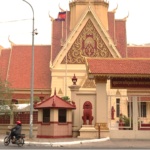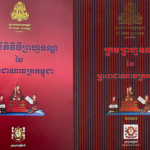Law and judiciary
Legal and judicial system
Judiciary and courts

The judiciary is one of the three powers, together with the executive (the Government) and legislative (the National Assembly and the Senate), that constitute the state. 1 Its role is to monitor the application of the law and punish its violation. This power is vested ...
Civil and commercial litigation

Since 1993, the Royal Government of Cambodia (RGC) has been working to reform the country’s legal framework, and in particular the application of justice, to provide a clear and fixed procedural system to ensure respect for individual rights and equality before the courts.1 In theory, ...
Criminal litigation

Criminal litigation refers to the judicial procedure held before a criminal court to resolve accusations brought against a person accused of a criminal offense. As defined in the law, “The purpose of a criminal action is to examine the existence of an offense, to prove ...
Court monitoring

Respect for strong values is the key to citizens’ trust in their courts.1 The international values recognized for judges are independence and impartiality, integrity, equality of treatment, diligence and competence. A judge cannot both decide a case and have a personal interest in its resolution. ...

